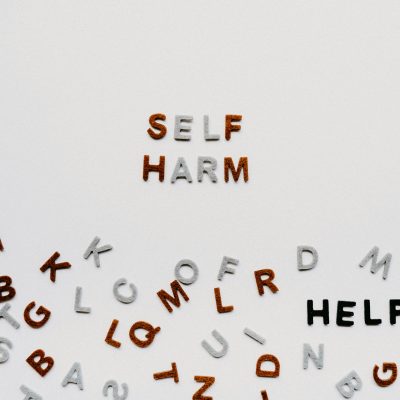“The problem of creating a holiday”: contrasting emotions of different poles
Oksana got out of bed in the morning, looked out of the window and said to Andrei in a deafening, pulling voice: “Well, it’s raining again, which means that again my heart will cry all day long… I’m tired of crying from sadness, how much of it there is around…”. He looked at Oksana and thought: “Yeah, but only today – since we’re breaking up, and tomorrow I’ll take my things, otherwise I’ll go to the asylum!”.
Oksana 27, Andrei 29,
dating 4 months
People often have a hard time tolerating boring, “gratuitous” negativity of other people, their constant “out of the blue” problems and sadness, their lamentations and complaints. Why? For one reason only – they themselves are afraid to be “infected” by it – to become like such people, and what is worse – their victims.
Any kind of psychological resistance to the negative (use of defense mechanisms), which systematically affects the normal psyche of a person, is obviously not a solution. For the defending person will inevitably begin to change the perception of the situation, which can significantly worsen his health.
In such a case, many people who are faced with such a risk factor sincerely realize that it is much “cheaper” to break up at the very beginning of the relationship. Since a timely parting (i.e. at the own will and conviction of the person oppressed by the negative factor) – firstly, will stop the negative influence, and secondly, will neutralize the existing negative emotions accumulated since the moment of a person’s stay near the “destructive factor”.
In the case of the “destructive factor”, this process started banally with frequent states of dissatisfaction (related to his self-esteem, etc.), accompanied by frequent negative emotions. Such states were not suppressed in any way, were not interrupted by positivity and were often fixed precisely on negativity. As a result, a person has a persistent process of predominance of the “negative component” in his character, as his organism has already gotten used to it.
Given that emotions play an important role in the process of manifesting human reactions, let’s take a closer look at them:
Psychological reference.
Emotions (from Latin emovere – to excite, excite) are states related to the assessment of the significance for an individual of the factors acting on him.
Emotions are expressed in the form of immediate experiences of satisfaction or non-satisfaction of his actual needs.
Negative emotions are emotions with a minus sign (destruction), entailing deterioration of general mood of the person, and also weakening immunity and disposing to bodily ailments for the person under their influence.
The natural meaning of negative emotions is, on the one hand, a subconscious realization by a living organism of its weakness (a block of self-preservation instinct) and, on the other hand, a protest of the psyche to continue moving forward in the given direction of self-improvement. In other words, the psyche is “dissatisfied” and there is an internal suppression of motivation, desires, aspirations – set for development or their devaluation (everything is reduced to the hopelessness of development).
Negative emotions – can cause mental activity (actions, ideas) directed both to destruction (manifestation of aggression, irritation, cruelty, etc.) and to creation (actions “in spite of”). And they can be manifested passively (for example, silent sadness).
Constant exposure of negative emotions on a person (both their own and from the position of an outsider falling under their influence) – contribute to a number of diseases. For example: headaches, systematic ailments (associated with loss of strength, weakness – energy depletion of the body’s resource, etc.), nausea, irritability, increased anxiety and nervous diseases (including neurosis).
The desire for negative emotions or their manifestations (which, in time, will take the form of a “negative component” of character, after which they will pass into the category of personality disorders, neurosis, etc.), as well as their predominance in the character of a person is a sign of psychological problems, as well as the search for negativity in positive emotions.
The prevalence of negative emotions in a person may be the result of a psychological trauma, stress, fright. In the case of “gratuitous” craving for negative emotions (in the absence of a clear cause of the problem) – we can talk about psychological trauma, which should be worked through with a psychologist. Also, the cause of craving for negativity can be a long-term (both forced and at will) stay in an environment that unambiguously promotes negative emotions (the environment of relevant people, sects, religious movements – contrary to the inner world of a person, pressurizing atmosphere, closed or distant from people premises, etc.). Moreover, a person may not realize the destructive influence of this environment on his psyche, as well as not understand the true reasons for the presence of destructive emotions.
No less interesting form of emotion are affects, i.e. so intensified emotional experiences that shut down consciousness during their process.
Affects – can take place both in the presence of negative and positive emotions. In addition, when the organism leaves the state of affect, emotions can be both positive and negative, regardless of the predominance of positive/negative components in a given person.
Thus, taking into account the above-mentioned, it is quite difficult for people with a predominance of negative emotions or a negative component in general to create the most ordinary holiday. The question of creating a holiday around them becomes a real problem for them, starting from the very thought of it.
It is just as difficult to please them, to make a desired gift (provided that the information about such a gift is accurate), to please them. Often, such people just condescendingly thank “for caring” or even discourage to give them gifts. They have elementary “learned” to enjoy life, to feel its positivity and see bright colors. They look for the bad and pull it on themselves. They concentrate everything sad and destructive and throw it away into the aura of normal communication with other people.
A spoiled holiday, an unsuccessful event, sudden problems – the situation is normal for them, they did not even doubt that this will happen.
At a successful holiday – they are bored, not knowing how to have fun, what to say good things. They laugh with restraint, not sincerely and little. If, however, something pleased them – they quickly return to the mood of thoughtfulness and sadness.
They look for offense in words, hidden meaning – which they happily take offense at. After all, here it is, finally, negative – native.
The above described is the result of the body’s “habit” to the absence of joy. As a consequence, such people, as usual, turn any holiday into problems, often not realizing their impact on what is happening. But with all this, such a person can be kind and sympathetic, sincerely not realizing his guilt in the spoiled mood of others. He does not understand why, unlike everyone else, only he is able to see and emphasize all the minuses in any, even the smallest plus. And those who do not see these “obvious disadvantages” – he will take them for frivolous fools.
It is best for such people to work in the field of analyzing project and non-project threats, negative factors of all kinds, risks – but not with people, but with papers.
In order for people with a predominant negative component in their character to find harmony, it is quite realistic to practically “teach” them to enjoy life, since this particular example is not a pathology, and therefore develops within the norm. In fact, with guarantees of absence of disorders (from the medical point of view), as well as with the correct strategy of psychological correction – there is every chance to balance both their emotional background and their character, and with this – and behavior in relation to others. However, in the presence of all the data on the behavioral patterns of such people, a strictly individual approach to each person is still necessary.
In contrast, the example of people with so-called “increased cheerfulness” is relevant.
Psychological reference.
People with “heightened cheerfulness” – often nicknamed “the celebration man” by those around them.
“Increased cheerfulness” is neither a disorder nor a psychosis. It is more often hereditary and supported by the society (family, school, friends) state of a person, which accompanied him in the process of development, growth.
As a result, the state of constant joy becomes a norm, a habit. But it should be noted that it is less persistent than the body’s habit of negativity.
P.S. The body gets used to the negative more easily, because the structure of the negative is simpler (it is easier to destroy) than the structure of the positive (it is more difficult to build).
Tamara was flying down the street and she was glowing! She was only going to the store, but her aerial pauses delighted the people around her and made them wonder why they were not so happy.
That said, what people didn’t know was that she was like that … always. Exactly – always, no matter what happened or what was going on.
Despite the prevalence of her positive emotions (innate cheerfulness), Tamara lived stably alone, as men – elementary hated her for “her constant positivity”. In their opinion, she did not have a high-paying job, a bright appearance or the “highest” intellectual abilities – and therefore the reasons for constant joy. But loneliness didn’t bother Tamara either, because her rule: “Positivity as a way of life”.
Tamara, 34 years old
Emotions are known to be one of the main regulators of human activity. People with “increased cheerfulness” are sociable, cheerful and smiling. It seems that they have every day – a birthday, which they are infinitely happy!
Around such people constantly feels festive. And it is not that they specially create it, this aura is formed by them subconsciously, casually and easily.
It is good when those who are close to such people are ready for constant celebration. Those who are not ready – inevitably experience negative emotions (see above) After all, they have little opportunity to maintain a constant state, even positive emotional excitement, in the same tone – because it is a great energy expenditure of the body. With the loss of energy – both health and mood are lost. As a result, people from the environment of the “celebratory person” – become as unhappy as those who have relations with people whose negative component of character prevails.
It is important to note that the “holiday person” is at risk of so-called sudden deaths. It is often said: “… such a cheerful, joyful and abruptly died, for many years without being ill with anything…”. It is easy to explain this, because in moments when a “person-feast” risks despair, grieve and take something to heart – can be so strongly undermine his health (both psyche and physiology, or simultaneously) that the consequences can be irreversible. After all, the emotional background falls sharply and rapidly from a large plus to a sharp minus – it is comparable to a sharp change in pressure or temperature, which becomes destructive …
The main peculiarity of “people-pleasers” lies in their persistent ability to see and perceive positivity, to look for positivity and to multiply it. This is the generation of positive emotions and their transmission to others.
In a short period of time (with mandatory breaks) – such people are able to charge others with health in the truest sense of the word.
To please such a person is easy enough – he will gladly accept your gifts emotionally emphasizing his sincere delight and will discuss with you everything that interests you.
Creating a holiday – a matter of honor to such a person, he will not let you get bored, will act as the “soul of the company”, will support design solutions and throw up new exciting options for all sorts of solutions.
The aura of the holiday – accompanies him everywhere, like the glory of artists. And if their activity is not related to creativity – they will not stay in such a job.
To summarize, I would like to note that emotions are an important driving factor in the process of people’s perception of both the holiday and its creation.
We see that the very creation of a holiday is a norm of life for some people, while for others it is an insurmountable problem.
The reason for the problems – lies in individual characteristics, often radically different from others. Moreover, as related to the ability (overwork of others), and inability to create holidays (lack of a sense of holiday).
But no less important feature of emotional reactions of any person is invariably not only the obligatory change of its emotional content from “+” to “-“, but also the observance of emotional balance in the process of communication with others.
Anisimova Alisa
Psychologist – personologist,
physiognomist














